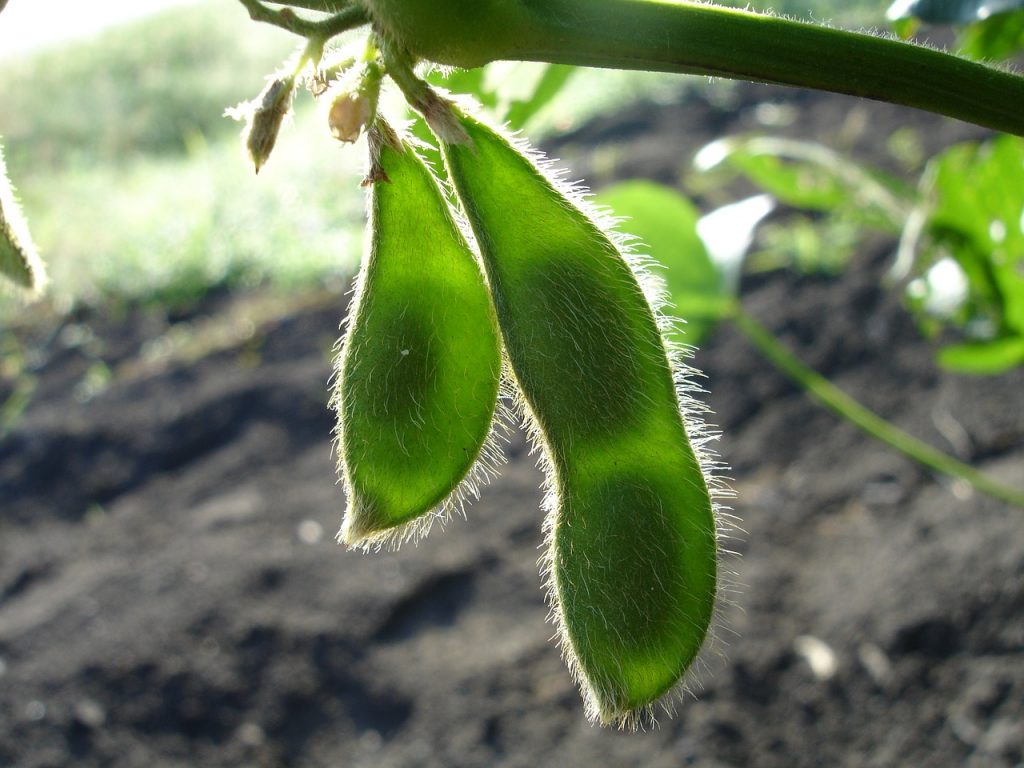
Industry
A sustainable supply of high quality, safe food is a priority for all nations. However, this, unfortunately, is not the reality. As reported in January 2018 by UNICEF, the World Health Organization and World Trade Organization, over 250 million children globally suffer from some type of malnutrition. Protein deficiency is a common type of malnourishment seen around the world due to lack of affordable, quality sources. Soybeans are one of the most dominant sources of a complete protein found in plant-based products. Soybeans and soybean products could alleviate some of the globe’s hunger and ECODA and our partners are working towards this and other goals.
In 2016, over 30 thousand (31,520) Canadian Farms reported growing soybeans with $2.8 billion in cash receipts (SoyCanada, 2018). Soybeans are the fourth largest field crop grown in the country and we export 50-70% of the crop. Based on the 2016 report from the Canadian Field Crop Research Alliance, finding a soybean line with increased quantity and quality of protein is one of the top 10 research priorities. This is being addressed by ECODA. Among the cultivated sources of protein, soybeans account for the largest share at approximately 30%, while also being significant contributors of oil.
Global demand for plant-based oils has grown from 166 million tonnes in 2013, to over 182 million tonnes in 2017, the value of which exceeds $88 billion USD. This value has been estimated to reach $130 billion USD by 2024 (OIP, 2018). The global interest in high oleic soybeans is steadily increasing, as its vegetable oils are already the highest in demand around the world. A soybean oil with a greater than 55% oleic content results in an oil that has increased heat and shelf stability as well as an improved flavour profile. These characteristics create more uses in food processing.
The demand for high oleic oils has been driven not just by conventional markets but also by the need to replace polyunsaturated oils and expand industrial applications. The development of a non-fossil fuel source of oil for lubricant and other industrial uses will help decrease the depletion of fossil fuels and is a renewable resource. Development of this type of soybean will increase productivity and resiliency of the industry, providing the diversity of a non-GM soybean grown for new and emerging markets.
Research focus
Building on the results of GF2, Sevita International and its partners will use the funding to develop soybeans with designer characteristics while remaining non-GM. Through the development of advanced technologies and innovative approaches, Canadian growers will eventually have additional non-GM soybean varieties that have enhanced nutritive quality. This will open new markets (domestic and international) and stimulate economic growth for the whole value chain. Diversifying the varieties of soybeans that are grown will also help mitigate both agronomic and economic risks for producers. Regulations and tariffs across the globe are becoming more restrictive so concentrating on breeding non-GM soybeans is imperative. It’ll build on our reputation as world leaders in agri-food innovation and technology as well as producers of safe, healthy food.
ECODA’s soybean projects are listed under:
ECODA’s canola-related projects are listed separately.
